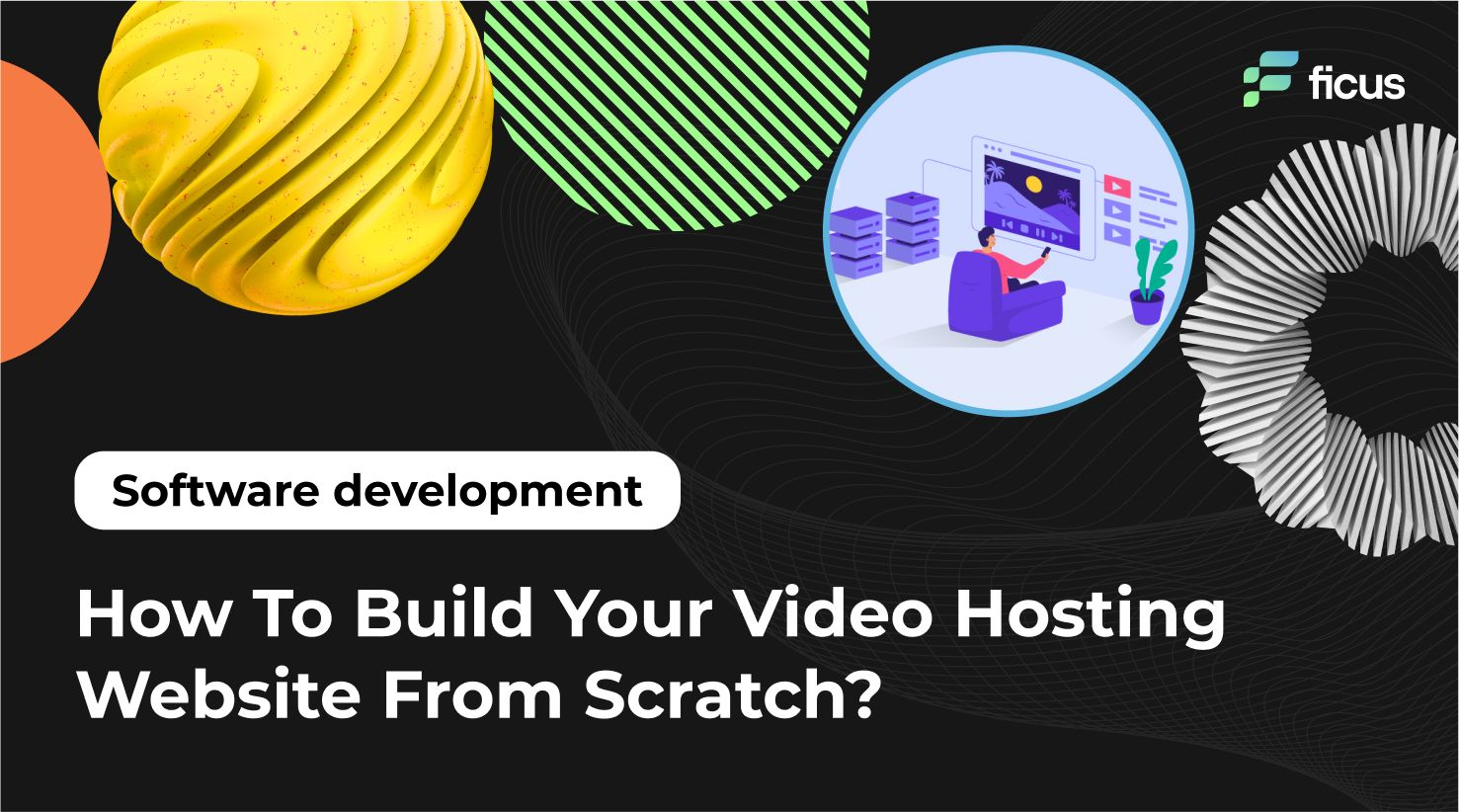In today’s rapidly evolving digital landscape, video content is indispensable for brand building, effective communication, and revenue generation. Video integration is paramount whether you’re an individual content developer or a thriving e-commerce enterprise. You need a dedicated online space to get the most out of your video content. In this article, you’ll learn how to build a video hosting website customized to your brand and key considerations for choosing the right video hosting platform for your website.
- Focus on a specific theme for your video hosting website.
- Choose an efficient CMS like WordPress and suitable hosting.
- Install a video hosting website theme and essential plugins.
What Is a Video Hosting Website?
A video hosting website is a key platform that provides storage and delivery of online video content for users. It acts as a video hosting service, providing individuals and businesses with the virtual real estate they need to showcase their videos. When you start building a video hosting website, you can choose between custom coding or using convenient website builders. Whether you choose the complex process of coding from scratch or take advantage of the simplicity of a website builder, the end result will be your personalized online space dedicated to video hosting.

Can You Host Videos on Your Own Website?
If you’re considering hosting videos on your own website, you’re in luck. The process involves logging into your favorite content management system (CMS), such as WordPress, and directly uploading your video files. However, it’s important to remember that uploading a significant amount of data can significantly impact your website’s performance. It can potentially degrade the overall user experience and even affect your site’s search engine rankings. If you have a large video library, it may be a wiser choice to use a third-party online video hosting platform, or a comparable website video hosting solution proves to be a wiser choice.
Why Do You Need a Video Hosting Website?
The versatility of a video hosting website makes it an invaluable asset for achieving various goals with your video content. Whether you’re looking to generate leads, generate subscription revenue or ad revenue, or create a centralized hub for your podcasts and social accounts, a dedicated platform will meet your specific needs. Creating your own video hosting website offers unprecedented flexibility, allowing you to curate a free brand video repository or create a paid subscription service with premium content. This strategic choice stands in stark contrast to using public video hosting services like YouTube, giving you complete autonomy over your site and the content you publish.
The Differences Between a Professional Video Hosting Website and a Video-Sharing Platform
While the terms “video hosting website” and “video sharing platform” are often used interchangeably, an important distinction lies in what they primarily focus on. Dedicated video storage space is the primary goal of a professional video hosting website. While it may include more services and tools, hosting is still the primary product, and the price often depends on bandwidth and storage space. Conversely, video-sharing websites emphasize content sharing between viewers and provide hosting services with usually unlimited storage. Private video hosting sites, on the other hand, are a better option for people who value security and privacy more than just the amount of sharing, as they potentially do not emphasize these aspects.
Looking for developers to build your video hosting website?
Contact usBuilding a Video Hosting Website Step-by-Step
Now that you understand the value of a video hosting website, let’s look at how to create a video hosting website step by step. Modern website-building tools simplify this process, making it accessible to everyone.
1. Custom-Code Your Hosting Website From Scratch
Creating a video hosting website from scratch using custom coding brings both challenges and opportunities. While offering unprecedented control, this method is time-consuming and complex, requiring advanced technical skills. If you decide to seek professional help, be prepared for a significant initial investment, which can reach tens of thousands of dollars. Ongoing costs include a video CMS, processing, storage, transcoding technology, content delivery network, security, legal issues, design, development, maintenance, and business promotion. This valuable path provides complete ownership but requires careful consideration of the significant upfront and ongoing costs of building a dedicated website video hosting platform.
2. Define the Goal for Your Video Content
Before you dive into the process of building a video hosting website, take an important preliminary step: clearly define the purpose of your video content. Without a clearly defined goal, any website you create can be ineffective. Ask yourself some basic questions: What kind of content are you creating? Is monetization part of your plans? What budgetary constraints do you face? Have you defined criteria or metrics to measure the success of your video strategy? This key step guides content creation and influences the choice of features you need in your website builder. Once your goals are defined, choosing the right video website builder becomes the next step in realizing your vision.
3. Choose a Site Builder
Choosing the right website builder is crucial when building a video-hosting website. Choose a cost-effective and user-friendly platform that meets your needs. A high-quality WYSIWYG (What You See Is What You Get) builder allows you to organize content blocks easily and watch real-time changes. Unlike conventional video hosting platforms with built-in video players, a robust website builder comes with built-in website-building features. This means you can easily integrate the process of creating a video hosting website with video hosting in one efficient tool. Later on, we’ll look at additional important features of the website video hosting builder you choose.
4. Set Up Your Video Hosting Website
Once you’ve chosen a video hosting platform, the next important step is to set up your website. There are several tasks that need to be completed to get your website ready to launch. These include setting up a domain, adding a logo and brand elements, customizing the content on the pages, and fine-tuning monetization and privacy settings. The balance between creating a high-quality website and speeding up the launch is crucial. A user-friendly WYSIWYG (What You See Is What You Get) website builder is invaluable in simplifying this process. After creating a video hosting website, attention turns to the exciting stage of uploading videos.
5. Upload Your Videos
No video hosting website is complete without its main attraction – videos. The “video upload” stage ensures that your Video on Demand (VOD) content is ready to be viewed by a global audience. A reliable video hosting platform simplifies this process with a bulk upload feature, eliminating the need for tedious manual uploads. Ensuring your videos meet certain file requirements is important regardless of the platform. Whether you’re uploading the video directly from your device or embedding it from another website video hosting service like YouTube or Twitch, be sure to edit important details like the video title, file name, description, thumbnail, and tags.
6. Launch the Site
After your video hosting website is carefully set up and your interesting videos are uploaded, it’s time for the exciting moment – launching your site. This can be as simple as clicking a button to take it from draft to public status. While this process may not always be exciting, it’s important to drive traffic to your website video hosting platform proactively. Strategically place your URL on your main website, in email newsletters, Instagram or TikTok bios, YouTube’s About section, and even on business cards. After the launch, focus on active promotion using a high-quality video hub to strengthen your brand’s presence and increase revenue.
Top Features in a Video Website Builder
Choosing the right video hosting website is subjective and depends on your needs. Pay attention to the basic features of a potential website video hosting platform to ensure it fits your use case and preferences for a smooth and efficient video hosting experience.
Customization: Brand Control
A robust video hosting website puts you in control of your brand with extensive customization options. Drag-and-drop functionality eliminates the need for complex coding or design skills while ensuring responsiveness across web and mobile devices. Showcase videos, playlists, or entire channels effortlessly, not only for branding but also to maximize revenue. The ability to strategically position high-quality content at the forefront increases both brand awareness and potential revenue. When choosing a website video hosting service for your website, prioritize customization features that match your brand’s aesthetic and content strategy to create a personalized and effective experience for viewers.
Monetization: Pricing vs. Revenue Potential
The pricing structure can significantly impact your revenue potential if you’re considering building a video hosting website. Some platforms target enterprise-level customers, charging high monthly fees, often in the hundreds or thousands of dollars. On the other hand, some platforms offer a scalable approach, allowing you to share revenue from Shopify subscriptions, tickets, tips, and transactions. In exchange for a lower monthly price for a website video hosting plan for your website, this can be a lucrative model. Make careful projections and calculations to balance pricing and revenue potential, ensuring optimal financial results for your video site.
Final Words
So, mastering the art of building a video-hosting website opens the door to unprecedented opportunities for brand promotion and revenue growth. This step-by-step guide explains the process, emphasizing the importance of choosing between custom coding and efficient site builders, strategically setting goals for video content and the importance of a user-friendly video hosting platform for the website. Remember that a well-designed video hosting site serves as a virtual repository and a dynamic hub for brand expression, audience engagement, and revenue generation.
At Ficus Technologies, we know how important reliable video hosting is to your brand’s digital presence. Our customized solutions are designed to meet your brand’s unique needs, ensuring that your video hosting service runs smoothly and efficiently. Whether you choose custom coding or use our user-friendly website builders, we provide comprehensive support from start to finish.
Whether you need user accounts on your video hosting site depends on your specific goals and content strategy. Accounts can increase user engagement by allowing viewers to interact with your content, leave comments, and subscribe to updates. Accounts also allow you to use personalized feature recommendations and manage subscriptions. However, requiring accounts can create barriers for casual viewers. If your priorities are community building, targeted content delivery, and data analysis, user accounts are a valuable tool. Evaluate your audience’s preferences and the goals of your site – the balance between accessibility and engagement will help you decide. Evaluate the benefits of user interaction and customization and the potential challenges to determine if user accounts are necessary.
There are different strategies for monetizing your video hosting website. Implementing pay-per-view models, subscription plans, or offering premium content creates revenue streams. Leverage advertising by partnering with brands or connecting to ad networks to run ads. Sponsorships, affiliate marketing, and product sales are additional opportunities. Utilizing crowdfunding to create exclusive content or using platforms like Patreon can increase financial support. Consider integrated e-commerce features that allow for direct transactions related to your content. The balance between user experience and revenue generation is key to ensuring that your audience perceives value. Regularly evaluate market trends and audience preferences, adjusting your monetization strategy accordingly for sustainable financial success.









As an expert in development, I thoroughly assessed the article and found it to be an invaluable resource for aspiring developers. The author’s explanations are concise and well-structured, offering a clear roadmap for success. Additionally, the inclusion of practical tips and best practices demonstrates the author’s expertise in the subject matter. I rate this article highly for its informative content, making it an excellent reference for developers venturing into the realm of video hosting.
Having reviewed the article as a development professional, I am impressed by its comprehensive and well-structured content. The author has carefully outlined a step-by-step process, leaving no stone unturned to help readers build a video hosting website from scratch. I applaud the article for its clarity, accuracy and relevance.
As someone who is just starting their development journey, I found this article. The author explains the process in a beginner-friendly manner, breaking down complex concepts into manageable steps. The inclusion of practical examples and recommended tools helped me understand the basics of video hosting. Although some of the technical aspects were difficult, the article provided a solid foundation for my learning. I appreciate the author’s effort to make the content accessible to beginners like me.